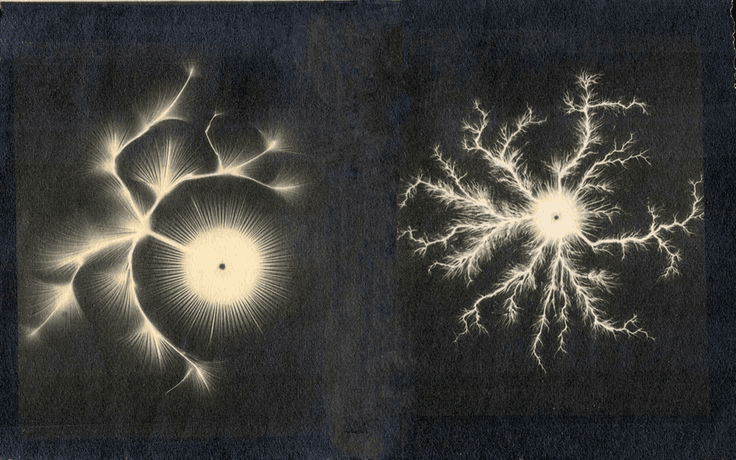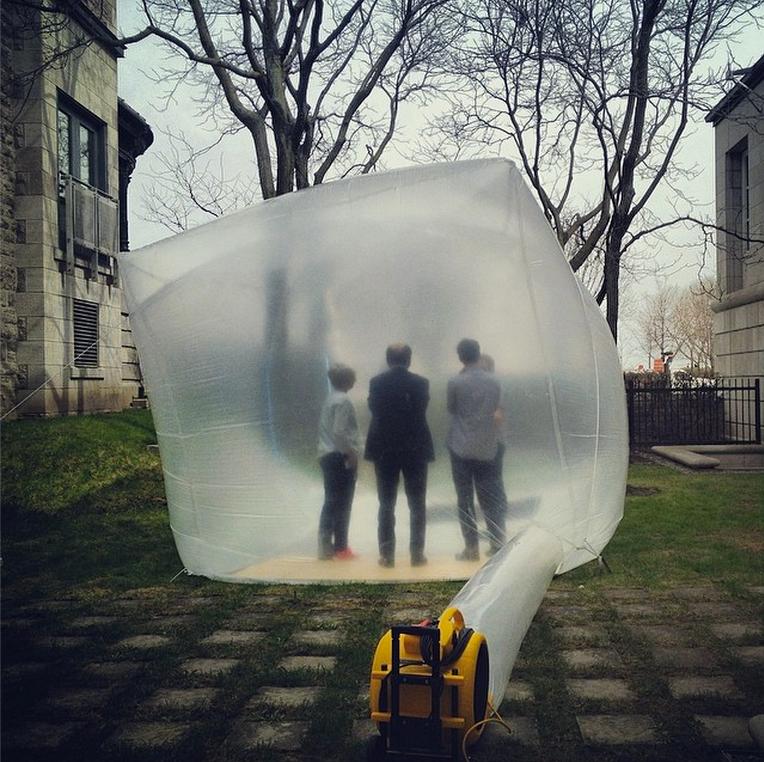
Hello!
It’s that time of year, where I turn reflective and contemplate visions of what the coming year may look like. Or perhaps it’s another chicken-and-egg situation, as I’ve been reading other people’s thoughts and feelings about moving from 2023 into 2024, that has me thinking about this. I’ve also been thinking about you, and how I’m sharing with you through this newsletter / blog, and what I’d like to experiment with here, in this space.
Which actually connects with the topic of this season, I’m finding: what’s going on with us and technology? How are we using technology in interacting with our world, with people? Or furthermore, how do we want to?
I’ve talked about it with friends, it’s come up again and again in articles and posts from people I’m looking at, and day one of my Physical Computing class this term. I’d like to try and pull some recent threads together, to begin exploring this question. In writing this it ran rather long, so I’m splitting it up into two parts, as well. Here’s the first:
 As I wrote in my previous post, somehow I’ve ended up researching the infrastructure of the internet. Yet I don’t actually consider myself a super ‘online’ person, nor an expert about it whatsoever.
As I wrote in my previous post, somehow I’ve ended up researching the infrastructure of the internet. Yet I don’t actually consider myself a super ‘online’ person, nor an expert about it whatsoever.
(I feel like I need to make this disclaimer, because I’ve been in social situations recently where I’m one of the people that has, relatively, the most knowledge about these things; also the ‘authoritative’ tone I adopted when I was writing a research grant application made me cringe; and even here, in previous articles where I’ve shared research — I’ve cut out a lot of the meandering, qualifying disclaimers in order to make it a bit more readable for you, but please just mentally insert them yourself whenever I make a claim. I never went to journalism school.)
I am more of a lurker than a contributor, I am now out of touch with many of the smaller communities that I used to follow, I have decreased my participation in social media platforms over the years, and I can’t say that I’ve ‘internet friends’, really, because I usually have met them in person first. Yes, I make artwork using technology (who doesn’t these days?…actually, quite a lot probably, but what I’m saying is that it’s not unique), but a lot of it involves hot glue and/or the digital-equivalent of hot glue. I follow, read, watch and listen to some very smart people who know a lot about these things, make brilliant things about it, and share opinions and ideas that influence me. I will say, I try and credit and/or link them for you when I can. To be blunt, depending on the space I’m in, I often feel like a very baby new chick falling from the nest, and/or a fraud.
Which I know is classic, ubiquitous imposture syndrome. But I share all of this because it’s lead me to think, well if I’m writing and making work about the Internet and Technology, shouldn’t I be able to articulate what it actually means to me?
 Low<-Tech Magazine’s server
Low<-Tech Magazine’s server
Recently, I feel like we often default to either complaining about technology or worrying over dystopic visions of the future. Perhaps it’s because of its role in delivering us horrific visuals and upsetting updates about the things that are, truly happening in the world, rather than just operating as a method for escapism. (I would highly recommend my friend Bonito’s article, Bonito, An Escape From What? in regards to this) My recent reading list has included:
I wonder if we’re collectively coming to a point of recognition of how enmeshed it is in our lives, and how restricting it can feel to be stuck within the web that we created for ourselves, over the course of years of signing up for things and buying devices and moving relationships onto platforms. Since moving to the east coast, many of my relationships from Ontario have had to transition to some online form. I’m grateful not to be entirely reliant on letter-mail to stay in touch, but it still feels limited considering how powerful and speedy machines are. It feels like the only options are to be a luddite — which is appealing at least in it’s kind of radical anarchist-like quality within the context of modern development — or to just “Agree and Continue” to whatever the Terms and Conditions. Naturally, I wonder about how we got here, trying to recall a time before rampant enshittification.
I grew up in the ’90s and early ’00s. We didn’t have cable, I didn’t have a cellphone until late highschool (my sweet, sweet little orange flipphone), and I’m pretty sure we had dial-up until then, too. But we did have a hunky beige Mac in a room. My core memories about technology are: waiting for InuYasha fanart on DeviantArt to load, chunk by chunk; my friend’s mum introducing us to flash videos on websites (does anyone remember Muffin Tales?); printing out tiny 420px screenshots of the new Zelda game, Majora’s Mask, to take to show my friend; and trying to follow a sparkly-eye drawing tutorial in an early version of Adobe Illustrator. I was getting a sense of just how much stuff was out there, but I was having to learn by myself and with friends how to find it. And while later I did begin to feel this sense of urgency and hustle, from all the advice and people talking about how they had made a thing, it was still with this sense of wonder and delight at (most of) the things I was finding.
When I was in college, Tumblr was the hot new thing on the block, and we were just dipping our toes into Twitter and Instagram. Netflix was putting out great, different shows for a reasonable amount and YouTube didn’t have pre-roll or mid-roll ads. We were at the first part, where platforms “are good to their users” (Docterow), and it was exciting and fun to participate. I was reading my favourite writer’s blog, finding services to self-publish books for collaborative projects, discovering mysterious worlds through my browser. Then I was introduced to the concept of the ‘personal brand’, and curating not just based on what I liked, but trying to make things look ‘good’ and ‘professional’ based on what else I was seeing — what was also being suggested to me, by algorithms.
As I was writing this I revisited an essay I had bookmarked before the holidays, What Happened to the New Internet? by Bryan Lehrer, who does a very good job charting the same time period. A lot of what he detailed resonated with my experiences, particularly working (briefly) in start ups, the stuff friends got hired to do, and the concepts and people I was introduced to during my time at the School for Poetic Computation:
Young romantics working at the “intersection of art and technology” launched endless criticisms of big tech’s overreach and in the process created the foundations for an entire scene of left-field internet aesthetics. Compared to the politicians and philanthropists, this scene had real exports including art, books, games, schools, and communities. But like all reactionary milieus, it wasn’t clear if the main output of this scene was an antithetical vibe before it was new institutions or even an actual new internet — Bryan Lehrer, What Happened to the New Internet?

Now… there’s still things that I find exciting and lovely about or made using technology! I don’t think tech will save us, but I do think there’s bright spots to be found. I’m not particularly enthused about AI or even-better hi-fidelity graphics, or even really AR/VR and other new devices. But I am enjoying the ‘alternative’ spaces, tools, and projects out there that tap into a sense of curiosity, poetry or humour. Or being able to see what friends and randos are bookmarking as a way of peeking in to their current interests. Or writing long-form, rambling thoughts to friends like you!
I’m not the only one with feelings about the internet. There’s lots of people — including those who are building new platforms — that are actively looking to find and/or create spaces for themselves and friends on the web, as always!
Next time, I hope to share a bit about how I’m thinking about enjoyment on the Internet, and who/what I’m looking to. If you have any recommendations or feelings about the internet, please, send them my way!
Happy new year, Katherine

This log was share via my newsletter on Substack. If you’d like to receive these logs in your own inbox, you can subscribe here: